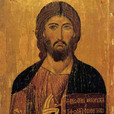
Summary: This week’s episode is titled, “Keeping a Record”The first 3 Cs of Church History are at times a difficult puzzle to sort out because no coherent historical narrative was being kept.Luke’s account in the Books of Acts recounts a time span of about 30 yrs & roughly narrates the spread of the Faith from Jerusalem to Rome. The next narrative doesn’t come till the writings of the Christian historian Eusebius in the 4th C. What we have for a period of over 200 yrs are the writings of the Fathers whose letters give little more than a thumbnail sketch of what was happening. We have to infer & assume a lot by picking up what facts we can about what was happening. As we’ve seen, the work of the Church Fathers focused mainly on providing pastoral & apologetic support. Gaining an historical framework for this period comes from merging secular accounts of history with the commentary of the Fathers. But with the work of Eusebius at the opening of the 4th C, the narrative becomes significantly clearer.Eusebius began compiling his magnum opus of Church History in the 290’s. Titled Ecclesiastical History, it’s an attempt to provide a narrative of the Communion of the Saints from the Apostles to his time.Eusebius was born & raised in Caesarea on the coast of Israel. He was a student of the Christian leader Pamphilas, who was himself a student of the great Apologist Origen. Eusebius became the bishop at Caesarea in 313. He played a major role in the Council of Nicaea in 325, which we’ll take a closer look at in a future episode.Eusebius is a key figure in the study of Church History because his Ecclesiastical History is the first work after Luke’s to attempt an historical narrative of the Faith. He’s also an important figure because of his close association with the Emperor Constantine.I want to quote the opening of Eusebius’ narrative because it gives us a sense of the monumental nature of his work. He knew he was attempting to reconstruct a narrative of the Church from scant resources.In Chapter 1, which he titled, “The Plan of the Work” he writes –It is my purpose to write an account of the successions of the holy apostles, as well as of the times which have elapsed from the days of our Savior to our own; and to relate the many important events which are said to have occurred in the history of the Church; and to mention those who have governed and presided over the Church in the most prominent parishes, and those who in each generation have proclaimed the divine word either orally or in writing.It is my purpose also to give the names and number and times of those who through love of innovation have run into the greatest errors, and, proclaiming themselves discoverers of knowledge falsely so-called, have like fierce wolves unmercifully devastated the flock of Christ. …But at the outset I must crave for my work the indulgence of the wise, for I confess that it is beyond my power to produce a perfect and complete history, and since I am the first to enter upon the subject, I am attempting to traverse as it were a lonely and untrodden path. I pray that I may have God as my guide and the power of the Lord as my aid, since I am unable to find even the bare footsteps of those who have traveled the way before me, except in brief fragments, in which some in one way, others in another, have transmitted to us particular accounts of the times in which they lived. From afar they raise their voices like torches, and they cry out, as from some lofty and conspicuous watch-tower, admonishing us where to walk and how to direct the course of our work steadily and safely.Having gathered therefore from the matters mentioned here and there by them whatever we consider important for the present work, and having plucked like flowers from a meadow the appropriate passages from ancient writers, we shall endeavor to embody the whole in an historical narrative. …This work seems to me of especial import
